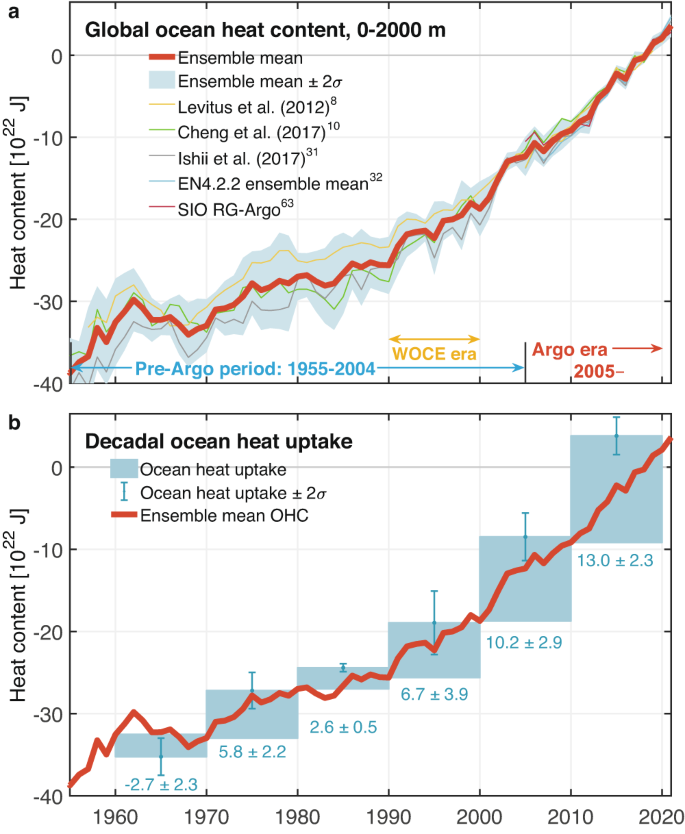2023-11-01 ニューサウスウェールズ大学(UNSW)
◆温室効果ガスの増加により、海洋は地球の気候システムにおける熱を吸収し、気温上昇を和らげていますが、その代償として海面上昇や極端な気象イベント、生態系への影響が発生しています。今後の気候変動の速度には不確実性があり、海洋が熱を吸収する能力が低下すると、将来の気候変動の速度に重大な影響を与える可能性があります。
◆研究者たちは、世界の海洋をより効果的に監視し、海面上昇と海洋生態系への影響を予測するために国際的な行動が必要であると指摘し、温室効果ガス排出を減少させるための行動の重要性を強調しています。
<関連情報>
- https://newsroom.unsw.edu.au/news/science-tech/ocean-warming-accelerating-and-hotspots-reveal-which-areas-are-absorbing-most-heat
- https://www.nature.com/articles/s41467-023-42468-z
海洋モードと中間海域による地球規模の海洋熱蓄積の最近の加速 Recent acceleration in global ocean heat accumulation by mode and intermediate waters
Zhi Li,Matthew H. England & Sjoerd Groeskamp
Nature Communications Published:28 October 2023
DOI:https://doi.org/10.1038/s41467-023-42468-z

Abstract
The ocean absorbs >90% of anthropogenic heat in the Earth system, moderating global atmospheric warming. However, it remains unclear how this heat uptake is distributed by basin and across water masses. Here we analyze historical and recent observations to show that ocean heat uptake has accelerated dramatically since the 1990s, nearly doubling during 2010–2020 relative to 1990–2000. Of the total ocean heat uptake over the Argo era 2005–2020, about 89% can be found in global mode and intermediate water layers, spanning both hemispheres and both subtropical and subpolar mode waters. Due to anthropogenic warming, there are significant changes in the volume of these water-mass layers as they warm and freshen. After factoring out volumetric changes, the combined warming of these layers accounts for ~76% of global ocean warming. We further decompose these water-mass layers into regional water masses over the subtropical Pacific and Atlantic Oceans and in the Southern Ocean. This shows that regional mode and intermediate waters are responsible for a disproportionate fraction of total heat uptake compared to their volume, with important implications for understanding ongoing ocean warming, sea-level rise, and climate impacts.



